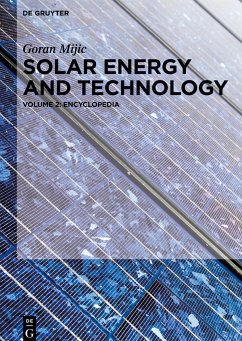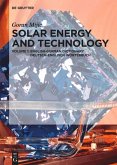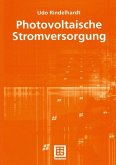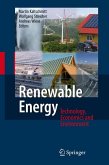Volume 2 is the most comprehensive and detailed encyclopedia of solar energy and technology available today, containing all essential solar terms in one place. A convenient source for spelling, classifications, and concise definitions of terms encountered in the study, reading, and practice of solar technologies.
The scope of the encyclopedia includes all terms of importance and topics of primary significance in the field. As the solar field is one of the fastest growing and changing sectors in the energy industry today, the ambition of this encyclopedia is to cover all key state-of-the-art solar components and technologies, including photovoltaic appliances and systems, solar-thermal systems, nanophotovoltaics, semiconductor materials and technologies, energy storage systems, software applications, solar architecture, measuring devices, units of measurements, mounting systems and components, hybrid power systems, solar occupations, infrastructure, rules and regulations, economics, and much more.
Written in a clear, precise, and easy-to-understand style, the encyclopedia is equally accessible to solar specialists and laymen. It is ideal for students, solar enthusiasts, and solar professionals, such as solar technicians, electricians, installers, engineers, scientists, designers, architects, managers, salesmen, marketing specialists, attorneys, writers, and translators.
Over 8000 entries used every day in the solar field - Accurate and up-to-date explanations of solar terms that keep the meaning in focus and provide the context in which terms are used
Abbreviations and acronyms - Explanation of what they stand for, with links to the complete definitions
Synonyms and related concepts - Help users identify words with identical or similar meaning
References to related terms - Full cross-referencing between entries widens the semantic scope of terms and provides helpful links for further exploration
Illustrations - Provide visual aids, offering additional clarification for complex concepts
Names of important solar and sustainable energy organizations
Hinweis: Dieser Artikel kann nur an eine deutsche Lieferadresse ausgeliefert werden.
The scope of the encyclopedia includes all terms of importance and topics of primary significance in the field. As the solar field is one of the fastest growing and changing sectors in the energy industry today, the ambition of this encyclopedia is to cover all key state-of-the-art solar components and technologies, including photovoltaic appliances and systems, solar-thermal systems, nanophotovoltaics, semiconductor materials and technologies, energy storage systems, software applications, solar architecture, measuring devices, units of measurements, mounting systems and components, hybrid power systems, solar occupations, infrastructure, rules and regulations, economics, and much more.
Written in a clear, precise, and easy-to-understand style, the encyclopedia is equally accessible to solar specialists and laymen. It is ideal for students, solar enthusiasts, and solar professionals, such as solar technicians, electricians, installers, engineers, scientists, designers, architects, managers, salesmen, marketing specialists, attorneys, writers, and translators.
Over 8000 entries used every day in the solar field - Accurate and up-to-date explanations of solar terms that keep the meaning in focus and provide the context in which terms are used
Abbreviations and acronyms - Explanation of what they stand for, with links to the complete definitions
Synonyms and related concepts - Help users identify words with identical or similar meaning
References to related terms - Full cross-referencing between entries widens the semantic scope of terms and provides helpful links for further exploration
Illustrations - Provide visual aids, offering additional clarification for complex concepts
Names of important solar and sustainable energy organizations
Hinweis: Dieser Artikel kann nur an eine deutsche Lieferadresse ausgeliefert werden.
"The value for students with any interest in solar energy lies in the contextual definitions of terminology that you cannot find in Wikipedia. [The encyclopedia] may also be useful for social scientists and humanists looking to participate in conversations about solar energy and technology. It helpfully delineates nebulous terms with multiple meanings, as well as relevant acronyms. This series has overall usefulness for multidisciplinary studies. Summing Up: Recommended. Lower-division undergraduates, technical school students, and public libraries."
J. J. Meier in: CHOICE 56.9 (2019)
J. J. Meier in: CHOICE 56.9 (2019)








